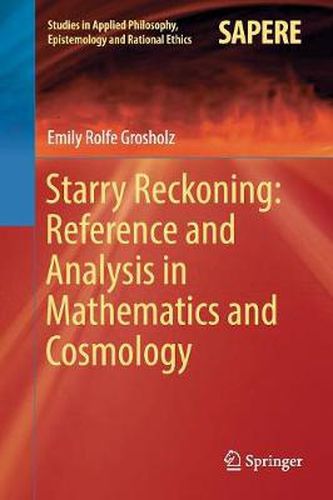Readings Newsletter
Become a Readings Member to make your shopping experience even easier.
Sign in or sign up for free!
You’re not far away from qualifying for FREE standard shipping within Australia
You’ve qualified for FREE standard shipping within Australia
The cart is loading…






This title is printed to order. This book may have been self-published. If so, we cannot guarantee the quality of the content. In the main most books will have gone through the editing process however some may not. We therefore suggest that you be aware of this before ordering this book. If in doubt check either the author or publisher’s details as we are unable to accept any returns unless they are faulty. Please contact us if you have any questions.
This book deals with a topic that has been largely neglected by philosophers of science to date: the ability to refer and analyze in tandem. On the basis of a set of philosophical case studies involving both problems in number theory and issues concerning time and cosmology from the era of Galileo, Newton and Leibniz up through the present day, the author argues that scientific knowledge is a combination of accurate reference and analytical interpretation. In order to think well, we must be able to refer successfully, so that we can show publicly and clearly what we are talking about. And we must be able to analyze well, that is, to discover productive and explanatory conditions of intelligibility for the things we are thinking about. The book’s central claim is that the kinds of representations that make successful reference possible and those that make successful analysis possible are not the same, so that significant scientific and mathematical work typically proceeds by means of a heterogeneous discourse that juxtaposes and often superimposes a variety of kinds of representation, including formal and natural languages as well as more iconic modes. It demonstrates the virtues and necessity of heterogeneity in historically central reasoning, thus filling an important gap in the literature and fostering a new, timely discussion on the epistemology of science and mathematics.
$9.00 standard shipping within Australia
FREE standard shipping within Australia for orders over $100.00
Express & International shipping calculated at checkout
This title is printed to order. This book may have been self-published. If so, we cannot guarantee the quality of the content. In the main most books will have gone through the editing process however some may not. We therefore suggest that you be aware of this before ordering this book. If in doubt check either the author or publisher’s details as we are unable to accept any returns unless they are faulty. Please contact us if you have any questions.
This book deals with a topic that has been largely neglected by philosophers of science to date: the ability to refer and analyze in tandem. On the basis of a set of philosophical case studies involving both problems in number theory and issues concerning time and cosmology from the era of Galileo, Newton and Leibniz up through the present day, the author argues that scientific knowledge is a combination of accurate reference and analytical interpretation. In order to think well, we must be able to refer successfully, so that we can show publicly and clearly what we are talking about. And we must be able to analyze well, that is, to discover productive and explanatory conditions of intelligibility for the things we are thinking about. The book’s central claim is that the kinds of representations that make successful reference possible and those that make successful analysis possible are not the same, so that significant scientific and mathematical work typically proceeds by means of a heterogeneous discourse that juxtaposes and often superimposes a variety of kinds of representation, including formal and natural languages as well as more iconic modes. It demonstrates the virtues and necessity of heterogeneity in historically central reasoning, thus filling an important gap in the literature and fostering a new, timely discussion on the epistemology of science and mathematics.